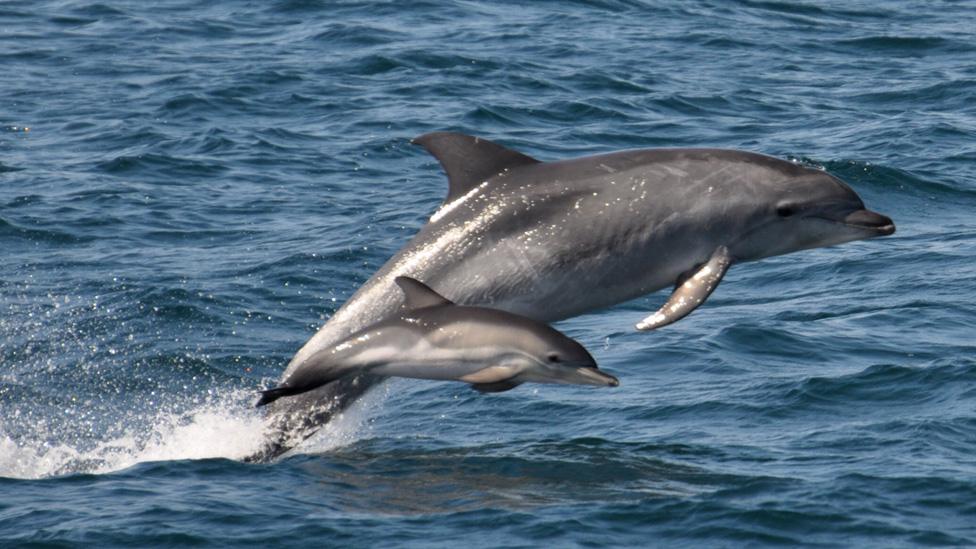Wales National Marine Plan aims for energy while protecting seas
- Published

The plan is to try to maximise the sea's potential while also enhancing the environment
New planning rules for developers wanting to build out at sea have been published by the Welsh Government.
They are designed to help boost renewable energy generation, while also protecting wildlife.
Environment Minister Lesley Griffiths claimed the National Marine Plan, external would put Wales at the forefront of tackling climate change.
But it stops short of setting out specific zones where there is opportunity for development.
This follows criticism from environment groups, who will now be part of the process of deciding where the so-called strategic resource areas (SRAs) will be located.
The seas around Wales are becoming increasingly crowded, with competing demands for space and the use of natural resources.
Until now though there has been no overarching rule book for managing the marine environment.
Traditionally, the needs of different sectors such as fishing, tourism or energy generation have been looked at separately.
It is why the new plan is being described by ministers as "ground-breaking", as it is designed as a one-stop shop for planning decisions out at sea.
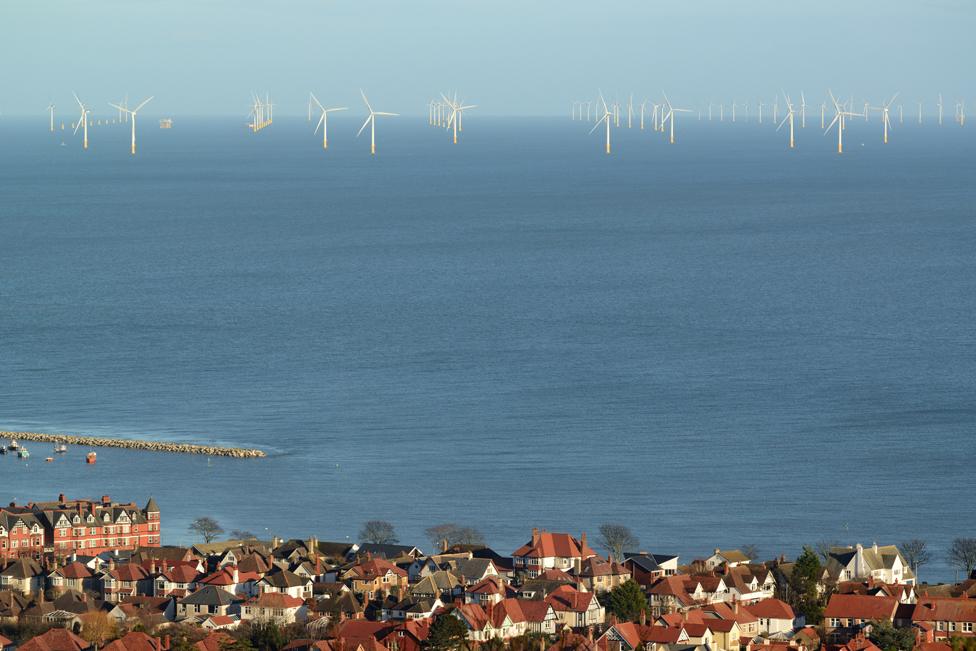
The plan area applies to both the inshore region and an offshore region from 12 to 200 nautical miles
All those wanting to do business in Welsh waters - from mussel farmers to shipping firms - will have to consult and adhere to it.
It also applies to local authorities who approve certain planning applications as well, as the environmental regulator Natural Resources Wales and others.
The idea is to try to maximise the sea's potential for jobs and clean energy while also enhancing the environment for wildlife.
That is a tricky balancing act - and the draft plans had initially upset environment charities like the Marine Conservation Society and RSPB who claimed there was not enough of a focus on protecting sea life.
The government says it has worked closely with them on its revised plan and made changes.
For instance, while the new plan still favours the idea of a series of tidal lagoons being set up along the Welsh coast it specifies that all the evidence around potential environmental impact must be looked at in detail.
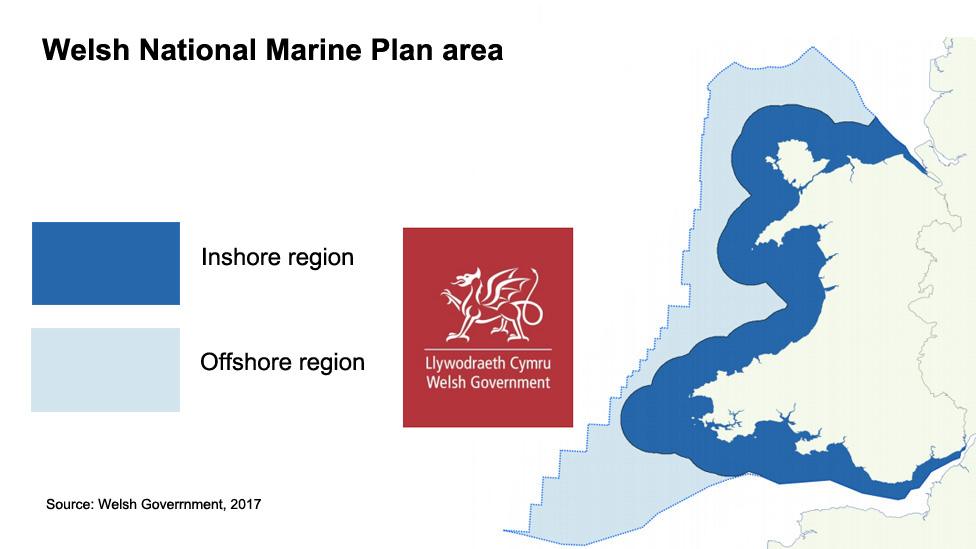
The marine plan area consists of about 12,350 sq miles (32,000 sq km) of sea, as well as 1,300 miles (2,120km) of coastline.
It is designed to work in tandem with the forthcoming National Development Framework, a similar idea but for Welsh land.
It is hoped they will guide new developments over the next 20 years.
Ms Griffiths said this was a "first step in ensuring we utilise our seas for the best of their potential, without having a negative impact on our marine and coastal environment."
Rhian Jardine, Natural Resources Wales' head of development planning and marine services said that it was a "first in a generation opportunity for Wales to help support and enable truly sustainable activity at sea, that is at the right scale and in the right place."
- Published20 September 2019
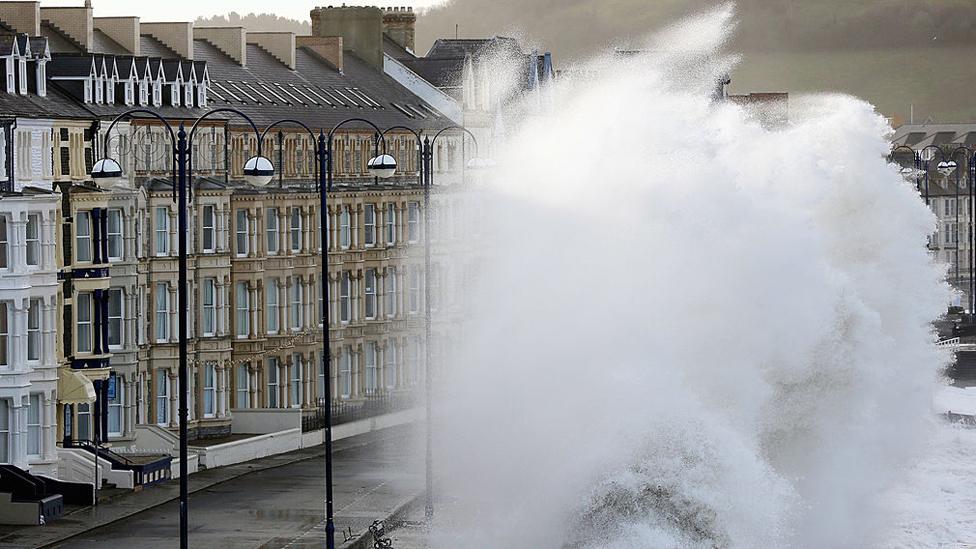
- Published3 October 2019

- Published2 October 2019

- Published22 May 2019
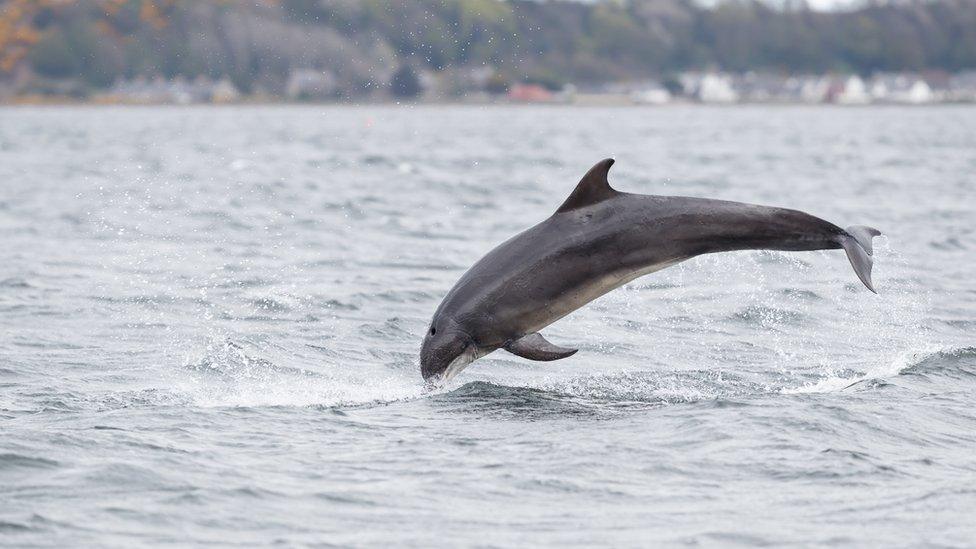
- Published19 May 2019

- Published25 January 2019
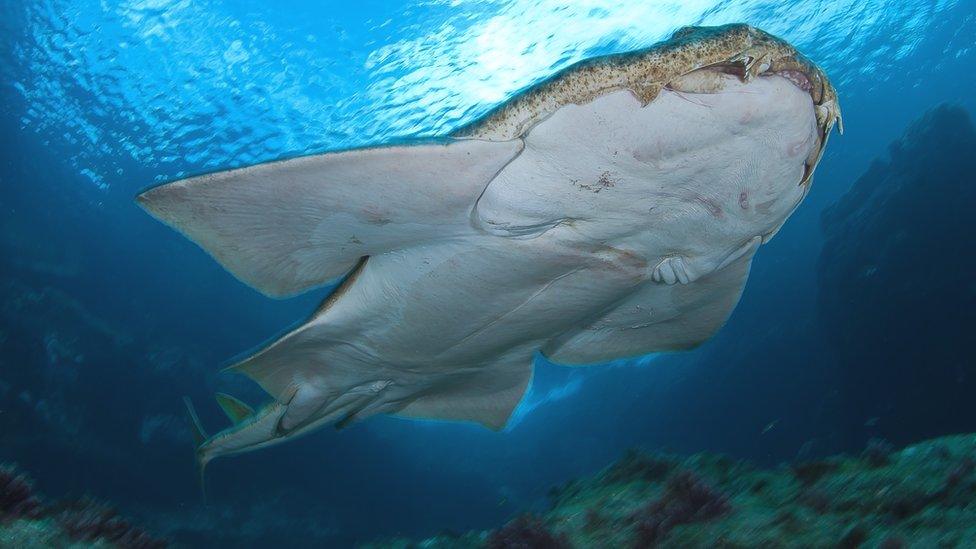
- Published9 January 2018
